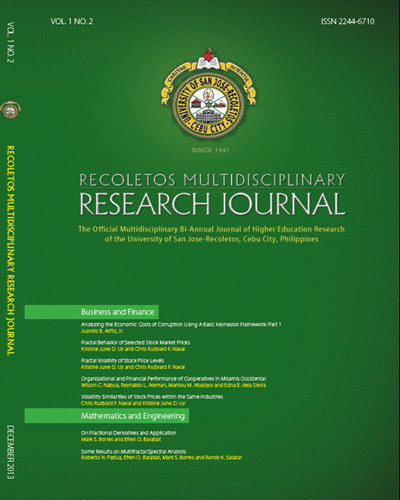Vote Pricing Spatial Probability Models in the Philippines
DOI:
https://doi.org/10.32871/rmrj1301.02.12Keywords:
vote buying, elections, suffrage, electoral fraud, vote pricingAbstract
This paper seeks to look into the causes and factors that lead to the practice of vote buying in the Philippines. This also tries to examine the motivations of candidates who buy and sell their votes. The data were obtained from a combination of government data bases and informal sources. The findings revealed a significant correlation between poverty, literacy rate and the buying price of votes. Vote buying thrives where poverty incidence is high and where literacy is low. Due to the rather high incidence of poverty in the country, vote buying appeared to escalate over the years. The interplay of economic needs of the
voters and their willingness to cast their votes to the highest bidders paint a rather glowing political scenario in the future.
References
“Fake Bills Used in Northern Samar Vote Buying.â€http://ph.news.yahoo.com/fake- bills-used-n-samarvote-
buying-202126873.html. May 16, 2013. Manila Bulletin.Web. June 26, 2013.
National Statistical Coordination Board.(April 23, 2013). Poverty incidence unchanged, as of first semester 2012-NSCB. Makati City, Philippines: National Statistical Coordination Board.
----- ----- -------. (March 10, 2013). Philippine Standard Geographic Code. Makati City: National Statistical Coordination Board.
----- ----- ------- . ( 2008). Simple Literacy of the Population 10 Years Old and Over1989, 1994, 2000, 2003 and 2008. Makati City: National Statistical Coordination Board/Department of Education.
Schaffer, Charles Frederic. (Sept. 3, 2002).What is Vote Buying? Empirical Evidence. USA: Michigan Institute of Technology.
Schedler, Andreas. (Sept. 26-27, 2002).What Is Vote Buying? USA: Michigan Institute of Technology.
Vicente, Pedro C. (January 2013). Is Vote-buying Effective? Evidence from a Field Experiment in West Africa.---(no place and date of publication).
The World Bank. (2013). Literacy rate, adult total (% of people ages 15 and above).(USA: The World Bank Group/UNESCO Institute for Statistics.)
Downloads
Published
How to Cite
Issue
Section
License
Copyright of the Journal belongs to the University of San Jose-Recoletos


